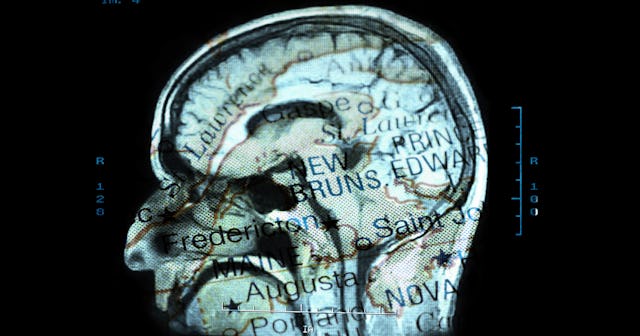There's A Mysterious And Deadly Brain Disorder Affecting Dozens In One Canadian Province

In New Brunswick, a Canadian province, a concentrated cluster of people have been diagnosed with a mysterious illness. It’s a disease that has infected 48 people in the Acadian Peninsula in northeast New Brunswick and the Moncton region in the southeast. Residents diagnosed with the disease range in age from 18-85, and no one knows why. Their symptoms resemble so many other kinds of diseases, from Alzheimer’s to cancer. Those who have contracted the disease report hair loss, increased anxiety or depression, blurred vision, memory loss and a host of other symptoms. It causes brain atrophy, and its origins are so mysterious that until they can pinpoint exactly what it is, experts have called it “New Brunswick Cluster of Neurological Syndrome of Unknown Cause.”
The first known case of the disease dates back to 2015. Over the last few years, more and more patients have showed up to hospitals in New Brunswick with similar symptoms. Besides the symptoms mentioned earlier, other symptoms include involuntary muscle jerks, weight loss, hallucinations, and insomnia; medications can help alleviate those symptoms, but they are not a cure.
In 2019, cases increased and 11 patients with this mysterious disease showed up in hospitals. In 2020, the number increased to 24 people. Scientists have been researching this disease since its onset; however, what researchers know about the disease is very little. For now, it’s about educating residents regarding the symptoms associated with the mysterious disease. The demographic most diagnosed with the disease are both men and women, with a median age of 59. The disease takes 18-36 months to progress, throwing off one’s balance and coordination. Can you imagine having a disease for two years, eating away at your brain, and not knowing what it is?
DenisTangneyJr/Getty
The New Brunswick Cluster of Neurological Syndrome of Unknown Cause is baffling to medical professionals. The research group investigating the disease, led by neurologist Alier Marrero of Moncton’s Dr. Georges-L.-Dumont University Hospital Centre, has confirmed that the disease is not genetic. “Before coming out with a definition of a new condition, you need to have a lot of information to be sure that you are not diagnosing something else such as a disease that is treatable,” he told CBC news.
Scientists and physicians are looking to find answers where there are none. All tests performed have come back negative. While origin of the disease is unknown, people diagnosed with the disease have symptoms similar to a disease called Creutzfeldt-Jakob disease. A neurodegenerative brain disease that infects one in 1 million people, the Creutzfeldt-Jakob disease is the result of an abnormal prion protein, and those with the disease usually die within a year of diagnosis. The preliminary thought is that the disease originates in the environment. Marrero and his team believe that environmental causes which could be found in food, water or toxins is the cause of the disease wreaking havoc in New Brunswick.
Since its onset, six people of the 48 diagnosed have died in the New Brunswick peninsula. Mayor Haché, of a town in New Brunswick called Caraquet, said in an interview in The Washington Post: “The population is in shock to realize that there’s a sickness out there, and we don’t know anything about it, and we don’t know where it’s coming from, and we don’t know what to do to protect ourselves from it.”
In hopes of finding answers, physicians have performed comprehensive testing on patients: blood testing, genetic testing, cancer screening, tests for zoonotic infectious diseases which cause neurological symptoms, even performing brain autopsies on the dead in hopes of finding a cause. But as of yet, no answers have been uncovered.
Chief Medical Officer of Health Dr. Jennifer Russell sent out a memo to physicians in early March in an attempt to help the medical community diagnose the disease. In her message, she urged physicians to take note of patients presenting with, “changes in behaviour, sleep disturbances, unexplained pain, visual hallucinations, coordination problems and severe muscle and brain atrophy.” She went on to say that her team is “searching for common links” and that “At this point, we have more questions than answers.” For the residents of New Brunswick, this has to be terrifying — especially on the heels of a pandemic that has left the world reeling.
For now, the disease has not been discovered elsewhere in Canada or anywhere else in the world. Now, we watch and wait to see what happens next — in New Brunswick, and hopefully nowhere else.